Ikey Doherty is probably one of the most tech-smart people I know. Fact is, Ikey is much like that guy you hear about on the news, the guy that can hear a string of four digit numbers and tell you the sum of them in a couple of seconds. Now, I don’t know if Ikey is capable of that feat, but I do know what he can do.
Ikey Doherty can code. Ikey Doherty can code in a number of languages.

OK, I’ll give you that. But let’s back up a bit. How much could you code before you went to college? A little bit? Was it a hobby until you decided you were interested in doing it professionally? The last time I did the calculations in my head, Doherty writes extensive and complex code in at least four languages.
He’s never set one gifted foot into a college classroom. He learned by reading and studying the work of others. And he picked it up fast. That is the extent of his education beyond high school.
As the founder of the now-retired SolusOS Linux distribution, Ikey was able to show the world just what he can do. Unfortunately, even the most brilliant people find out that they cannot do it all. Sometimes, you simply know when you are in over your head. Life happens. We get new jobs. We get married, divorced or have an illness in the family. Often the help that we expected didn’t materialize as expected. Life happens. We move on.
Ikey’s brilliance is often shielded from most of our views. I mean, I knew Ikey was smart, but that level of smart transcends our everyday exposure to smart. I’ll show you how I came to that conclusion.
I do a little scripting when I can find a work-from-home contract and something that pays fairly well. Last year, I was glad to get a fairly nice contract and I was surprised that it paid so well. I thought that way too soon. I was stuck. I mean, stuck-like-a dump-truck-in-two-feet of-mud stuck.
I looked at the time, calculated the time difference between here and Great Britain and emailed Ikey with the problem. I figured it would take him a bit to work throgh the code, so I got up and fixed some breakfast while I was waiting.
Hearing my email alert ding on my phone, I checked it and there it was. There was Ikey’s response. I went back into the study where I could see his work on a big screen. Ikey fixed it. It didn’t take him 5 minutes and the shutdown hook worked perfectly. SystemExit exception anyone? Sheesh.
Ikey found work as a software engineer for Intel in Great Britain and does that full time now. I mean, he blew through the interview processes and did so without one college diploma or transcripts. He keeps his hands busy while off duty by working on his project.
 He is writing a Linux distribution just for his own use, but he publishes most everything he does so others can see and learn as well. Ikey wasn’t comfortable with all the overhead in Gnome3, so he set about to write his own environment founded on that code base. He calls it “Budgie.” I thought it might be fun to catch up with him and see how that is going for him. So I did, and asked him directly.
He is writing a Linux distribution just for his own use, but he publishes most everything he does so others can see and learn as well. Ikey wasn’t comfortable with all the overhead in Gnome3, so he set about to write his own environment founded on that code base. He calls it “Budgie.” I thought it might be fun to catch up with him and see how that is going for him. So I did, and asked him directly.
What sparked the desire to create Evolve OS?
Well, I wanted somewhere for experimentation. One thing I’ve learnt is it’s pretty hard to experiment in anything approaching “mainstream” status. I’m lucky in that I’m not creating Evolve OS with a long term goal of monetization. It’s a project that I’m supporting, not the other way around.
So, it’s somewhere for me to play with interesting concepts and allows other projects to do the same without the risk factor involved in large scale deployments. A side effect of the project’s existence, ironically, will be a usable distribution. Disclaimer: I’m not recommending it as a daily driver!
I want something for myself too and that’s one of the biggest motivations. I need a daily driver for myself and have a peculiar taste in how a Linux distribution should be put together. I need to satisfy my own needs first and foremost, and as always, I share my work.
How does Budgie differ from the base environment?
Well, it’s a very simple session designed to be a bit more lightweight than other systems, but with the intention of integrating with the GNOME stack. So it provides a light window manager wrapper that actually uses libmutter underneath. It’s employed in a similar fashion by GNOME Shell itself, as opposed to directly running Mutter.
Simple panel and a traditional layout, but with a modern take. The menu and panel themselves should be very familiar to old SolusOS users or even Chrome OS users (mixed bag of inspiration, heavily leaning toward the latter).
I had a choice of desktop environments available to me, but I specifically required GNOME integration. I develop with GTK daily, so it makes sense to keep what I like. Unfortunately that limits the choice to super-lite desktops, forks, badly written codebases or a combination of any of those. There are other desktops available, but they’re tied pretty closely with their parent distribution and rely on a heavy handed approach to patching packages to conform.
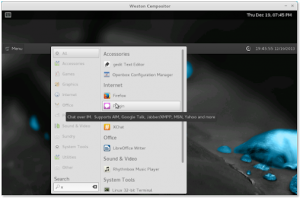
Will Evolve be available for download and installation?
It will indeed. I’m making no promises as to when it’ll be available, I’m a very busy guy. Well, you know that yourself Ken. You were meant to get this last night.
I’m only targeting x86_64 (64-bit), as all of my installations are now 64-bit. That’s what I have and use, so that’s what I’ll support.
It’ll probably be live to start with, but live images are rife with problems, so will eventually go with an install image. It’s not going to take as long as one would think, as I’m actually reusing the packaging from SolusOS 2 to save time. This also has the benefit of keeping the distribution lightweight plus task specific.
What do you see as the biggest problem or fault in the Linuxsphere, speaking from the standpoint of a developer?
Not enough risk taking. Hence, Evolve OS.
Where does Linux desktop go from here? What future do you see for the Linux desktop?
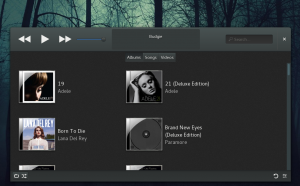
It’s still a piece of hardware and should be treated as such by those singing about the death of the PC. You’re personally computing. The form factor may well be changing, but then again, I don’t really think I would still use my old beige tower as a laptop.
We also know that screens are getting larger and units are getting smaller, with a focus on interaction. I see a lot of projects now jumping on the “touch support” bandwagon. I think they’re too late. Touch systems are already very old but are relevant in the context of mobile computing. This is just the start of the revolution, with most laptops in the last year or two already having touch screens. In fact, my Thinkpad X1 Carbon has one.
I believe there will be a large shift towards more natural and accessible forms of interaction with your computer. I personally have been experimenting with OpenCV detection, by running it on my Intel Galileo and driving my laptop via a serial console. A simple homemade device, with no more than £12.50 spent on an everyday webcam, has yielded some pretty interesting results!
The “Linux desktop” is already very successful — but those thinking we’ve finally passed the storm of change couldn’t be more wrong. The next few years should prove very interesting, with new VR plus augmented reality units shipping now, not to mention haptic feedback in the air (yup, Disney) now a reality — we can start examining many different forms of interaction.
The one I personally look forward to is the Intel RealSense 3D camera being employed within the context of a desktop. Not that I’m saying I’d create my documents using this, but for F2F meetings, gaming, media, browsing, chats, etc., I see enormous potential (my next experiment).
We’ve already learnt from Steam OS that “desktop” means nothing. Big Picture mode shows us we can imagine desktops in any way we want and create what we want. The technology exists. The only thing we need now is for people to start using these technologies to create exciting “desktops” for Linux based systems. We’re at a point were we can actively change things without waiting for others to do so and can be the pioneers in a new “desktop” world. First port of call for a new desktop? Don’t mentally refer to it as such and throw everything out, bathwater included! Sure, people will be up in arms about it, but that’s just part of life.
While Budgie will remain Evolve OS’s default desktop, I did say I created it for experimentation…right?
Ken Starks is the founder of the Helios Project and Reglue, which for 20 years provided refurbished older computers running Linux to disadvantaged school kids, as well as providing digital help for senior citizens, in the Austin, Texas area. He was a columnist for FOSS Force from 2013-2016, and remains part of our family. Follow him on Twitter: @Reglue


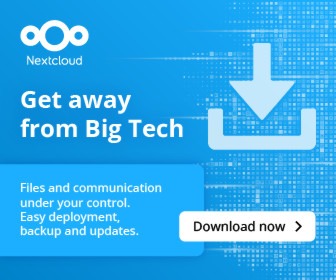



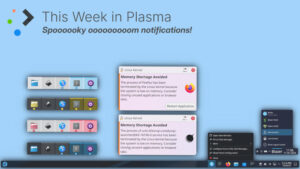
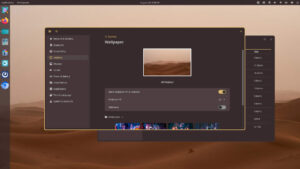

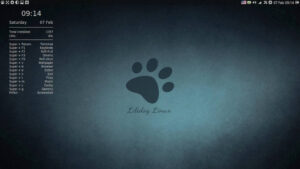






Anyone that used Solus knows what Ikey can do. I hope he keep working steady but not overwhelming. If anything Ikey tries to do to much. That is what happened with earlier OS’s and Solus. He almost ruined his health. Glad to see him contributing though, he is a gift to Linux.
Perennity anyone?
Good to see Ikey getting recognition for his talents. I can’t wait until Evolve OS is ready to test. Intel have bagged a truly gifted coder. I agree with Solus User in saying ‘Don’t overdo it Ikey’. Maintain focus with Intel and work on Evolve at a pace that doesn’t stretch you’. You have a group of loyal testers waiting to see what you come up with. Good luck mate